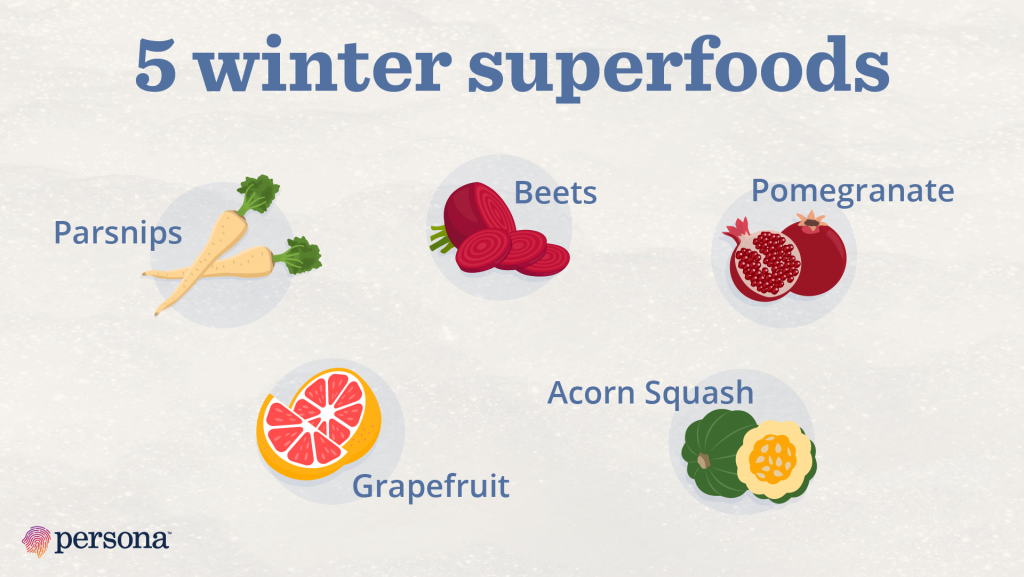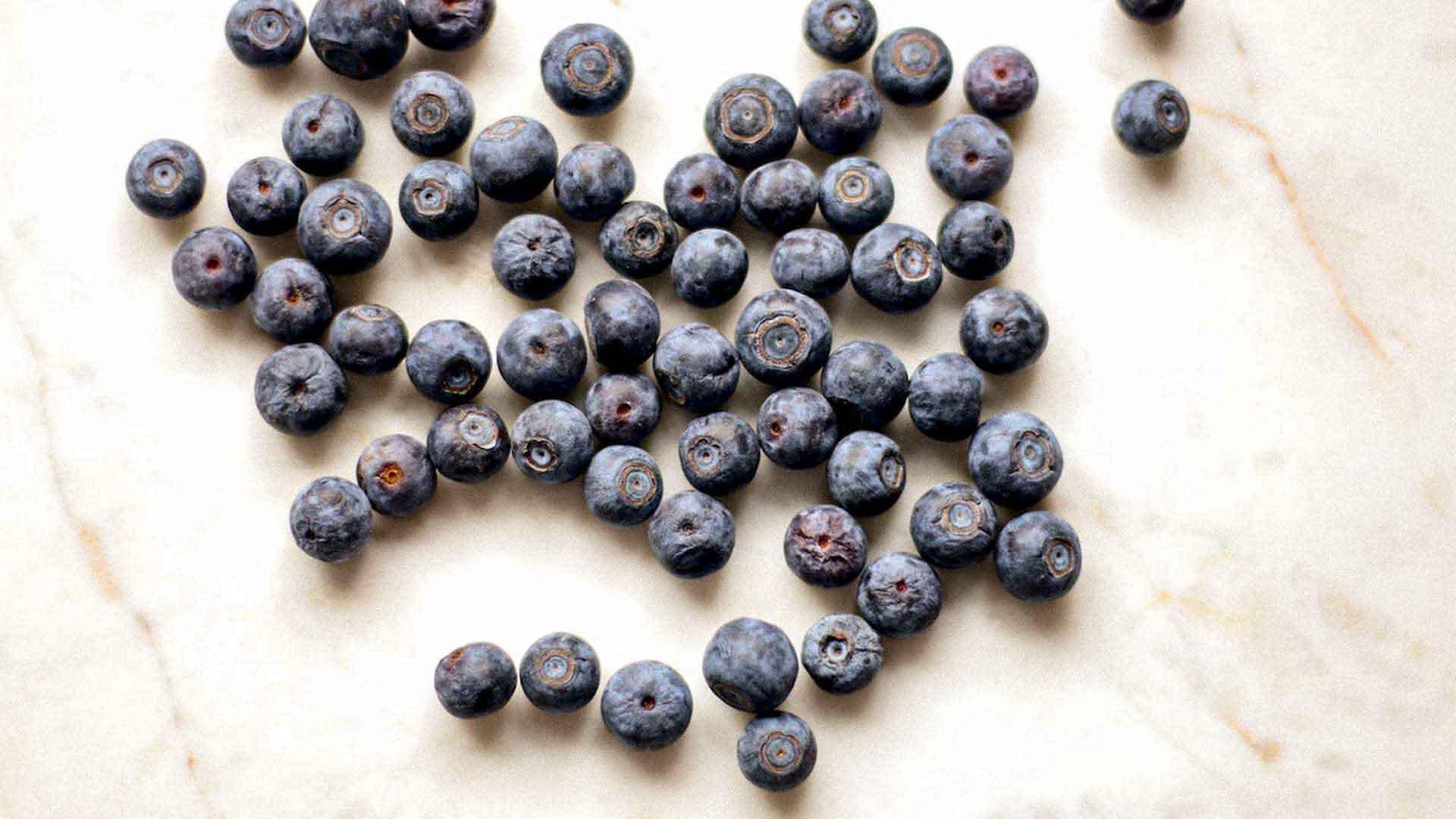The cold, dark and dreary days of winter often have us summoning our favorite comfort foods for a much-needed pick-me-up. But what if we powered up our plates with tasty, seasonal foods that are also rich in nutrients? We’re sharing our 5 favorite winter superfoods to help you beat the winter funk.
#1. Acorn Squash
Tis’ the season to show your immune system a little love and the acorn squash is up for the task. Slice open this drab green gourd to unveil a nutty, bright orange center that’s loaded with good-for-you nutrients.
Acorn squash is a great source of calcium, magnesium, potassium, vitamin C and fiber to support digestion, your immune response and keep your ticker ticking! Plus, it’s rich in antioxidants to neutralize cells from free radicals – compounds that can damage cells when they build up.
Best way to eat it
This superfood can be roasted and eaten as a side, pureed into a delicious winter soup, or topped with honey or brown sugar for a little bit of a sweet treat. The possibilities are truly endless for this small but mighty squash.
#2. Pomegranate
Why don’t we wear white after Labor Day? Because pomegranate season is in full swing. Although those bursting ruby seeds can get a little bit messy, it’s worth the cleanup! Also known as the miracle fruit, pomegranates are rich in polyphenols – compounds potent in antioxidants that have been linked to healthy weight, blood sugar levels, and heart health.1
Best way to eat it
Try these delicious, sweet treats on their own, tossed into a salad or even as a refreshing juice.

#3. Beets
This superfood favorite is packed with many health-benefiting compounds, specifically betanin and naturally occurring nitrates. Betalains helps reduce oxidative stress and nitrates support healthy cholesterol, cellular health and even athletic performance according to some research.2
Best way to eat it
This earthy, root vegetable is the perfect addition to salads, a warm pairing to ricotta and honey, or deliciously roasted as a standalone side.
#4 Grapefruit
Our favorite zesty fruit is a true superfood, and at its prime during the winter months. It’s rich in flavonoids- naturally occurring compounds that have health benefits. Thanks to their unique profile of flavonoids, grapefruits are thought to have neuroprotective effects, meaning they’re good for your brain.3
Best way to eat it
Ditch the grapefruit spoon. Slice up some grapefruit, orange slices and fennel and then drizzle with some avocado dressing for creamy, citrusy perfection.
#5 Parsnips
All hail our favorite pasty vegetable- the parsnip. Surprisingly, they contain more than twice the fiber of their popular, orange cousin: carrots. Fiber is essential for gut health and since a healthy gut has been linked to mood- parsnips might be the perfect winter pick-me-up.
Best way to eat it
Boil them up and then whip them in the blender with some cream, salt and pepper.
For more fiber-rich superfoods, read 10 foods high in fiber
About Madison
Madison is a Functional Nutritionist and member of the Persona Research and Development team. With a degree in Nutritional Sciences from Texas A&M University, she strives to bring science-backed knowledge to the health and wellness community and those who may be interested in positive life change. She has a passion for identifying the impact stress plays on overall health and empowering individuals to break the cycle of chronic stress.
Do you have questions about supplements? Reach out to one of our experts, or take Persona’s free nutrition assessment, and learn exactly what you need to take your wellness to the next level.
*These statements have not been evaluated by the Food and Drug Administration. This product is not intended to diagnose, treat, cure, or prevent any disease.
This information is not intended as a substitute for the advice provided by your physician or other healthcare professional, or any information contained on or in any product label or packaging. Do not use the information from this article for diagnosing or treating a health problem or disease, or prescribing medication or other treatment. Always speak with your physician or other healthcare professional before taking any medication or nutritional, herbal, or homeopathic supplement, or using any treatment for a health problem. If you have or suspect that you have a medical problem, contact your health care provider promptly. Do not disregard professional medical advice or delay in seeking professional advice because of something you have read in this article.












